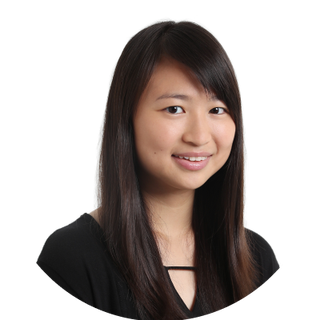Singapore must prepare for, and prevent, second wave of Covid-19: Gan Kim Yong
It is imperative that Singaporeans remain responsible and adhere to safe-distancing rules, he adds

Singapore
SINGAPORE must be prepared for a second wave of Covid-19 infection, although that can be avoided as long as residents remain vigilant and continue to behave responsibly, said Health Minister Gan Kim Yong on Friday.
His remarks came in the wake of a second round of coronavirus spread in Hong Kong, Australia and Japan, trends which have led the Singapore authorities to tweak incoming requirements for visitors with travel history to those areas.
In Singapore, the number of new community cases has averaged around 12 a day in the past week, similar to the count in the first week of July. Around half of community cases over the past two weeks were linked.
Of the unlinked cases, about seven in 10 were asymptomatic. Almost half were likely to be past infections, in that they tested positive under serology tests, said the taskforce managing the Covid-19 outbreak during a press conference.
A large proportion of unlinked community cases are from the construction and its related sectors, said Mr Gan, who co-chairs the taskforce. He added that an average of 2,400 cases of acute respiratory infection are tested each day to detect Covid-19. Even with the rigorous testing, the number of unlinked Covid-19 cases detected in the community remains in the low single digits. "This suggests that the prevalence in the community remains low," he noted. However, with the expansion of economic activities and heightened social interactions since the start of Phase 2, the number of Covid-19 cases are expected to rise, said Mr Gan.
GET BT IN YOUR INBOX DAILY

Start and end each day with the latest news stories and analyses delivered straight to your inbox.
As at noon on Friday, there were 327 new cases confirmed in Singapore, taking the total to 47,453. Nine community cases were detected, including six Singaporeans or permanent residents and three work pass holders.
Highlighting the situation in other countries, Mr Gan said: "We must be prepared for a second wave too, but we must do our best to avoid it if we can. There are useful lessons we can glean from their experience to avoid a similar scenario in Singapore."
A review of overseas case studies by the Ministry of Health found that in many instances of a resurgence in infections, safe-management and safe-distancing measures had not been adhered to. For example, clusters were observed in Hong Kong where people failed to wear masks in restaurants and cafes before and after consuming meals. In South Korea, clusters formed at religious gatherings and in workplaces. Tokyo reported clusters traced to night-life establishments.
It is therefore imperative that Singaporeans remain responsible and adhere to safe-distancing rules, said Mr Gan. "The second wave is preventable if everyone plays their part, and I believe that if anyone can do it, Singaporeans can."
Asked whether there is a threshold for the number of community cases that would prompt a tightening of safe-distancing measures, Mr Gan replied that the taskforce would need to determine whether the nature of transmission calls for such a move.
He said the number of symptomatic and unlinked community cases - detected through a routine screening for acute respiratory infection - is being closely watched. "If these cases start rising, it could be an early signal that there may be an increase in the underlying transmission in the community."
National Development Minister Lawrence Wong said that the taskforce hopes to avoid another broad-based measure such as the nationwide "circuit-breaker" previously put in place.
Instead, it would consider more localised approaches, such as shutting down premises that it believes might be of higher risk, or putting in place localised control measures.
Giving an update on the situation in migrant-worker dormitories, Mr Wong said that the taskforce expects to finish testing all workers by mid-August. As at July 16, around 232,000 workers had either recovered, or been tested and found free of the virus. Many of the workers being tested in the final phase are from dormitories with a higher prevalence rate, which resulted in the higher number of dormitory cases reported recently, said Mr Wong.
Given the risk of cases imported from overseas, travellers entering Singapore after July 19 who had travelled to Japan, Hong Kong and Victoria, Australia in the last 14 days will serve their stay-home notice at dedicated facilities instead of their own residence.
BT is now on Telegram!
For daily updates on weekdays and specially selected content for the weekend. Subscribe to t.me/BizTimes
International
Blinken to meet businesses in Shanghai as he kicks off a tough China trip
Indonesia’s central bank surprises with ‘pre-emptive’ rate hike to cushion falling rupiah
South Korea’s economic growth beats forecast as exports rise
China 2024 growth outlook raised to 4.8%, deflation risk lingers
Luxury sector outlook clouded by China’s slow recovery
‘We aren’t going anywhere’: TikTok CEO expects to defeat US restrictions
